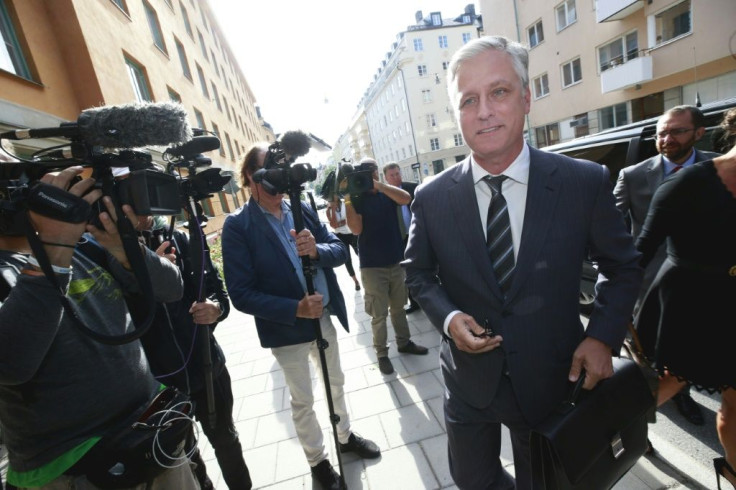US - China Trade War: Trump Adviser O'Brien Still Confident That 'Phase One' Deal Could Be Reached By End Of 2019

National Security Adviser Robert O'Brien said Saturday that a "Phase One" agreement between the U.S. and China could still be possibly reached by the end of the year.
“We were hoping to have (a phase 1) deal done by the end of the year. I still think that’s possible,” O'Brien told reporters while at a conference with Canada.
A "Phase One" deal would mean that the U.S. would lower its tariffs for Chinese goods, in exchange for China buying U.S. agricultural products. American farmers have often been hard-hit by the trade war, with the Trump administration paying billions to the U.S. agriculture sector in compensation.
“At the same time, we’re not going to turn a blind eye to what’s happening in Hong Kong or what’s happening in the South China Sea, or other areas of the world where we’re concerned about China’s activity,” O'Brien continued.
Protests continue in Hong Kong, with both houses of Congress passing a bill in support of pro-democracy protesters this week. President Trump has said that he supports the protesters but has not given a clear signal of whether he will sign the bill. Trump has suggested that by signing on to the legislation, it could jeopardize ongoing trade talks with China, as it threatens the country with possible human rights sanctions.
The legislation "is being sent over. We're going to have to take a very good look at it," Trump said Friday.
The Chinese government has warned of "strong countermeasures" towards the U.S. if it passes the bill.
"We urge the U.S. to grasp the situation, stop its wrongdoing before it's too late, prevent this act from becoming law (and) immediately stop interfering in Hong Kong affairs and China's internal affairs," Chinese Foreign Ministry spokesman Geng Shuang said Thursday.
The Trump administration has tried to take a tough stance on China in multiple areas.
The tariffs on Chinese-made goods, for example, are seen by the administration as a way to bring back U.S. manufacturing and fight back against cheap exports from China. The administration also has tried to criticize China's human rights abuses by putting visa restrictions on Chinese officials tied to the surveillance of the country's Muslim Uighur population.
© Copyright IBTimes 2025. All rights reserved.





















